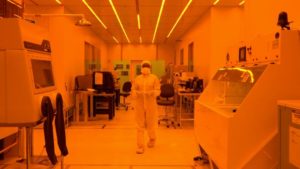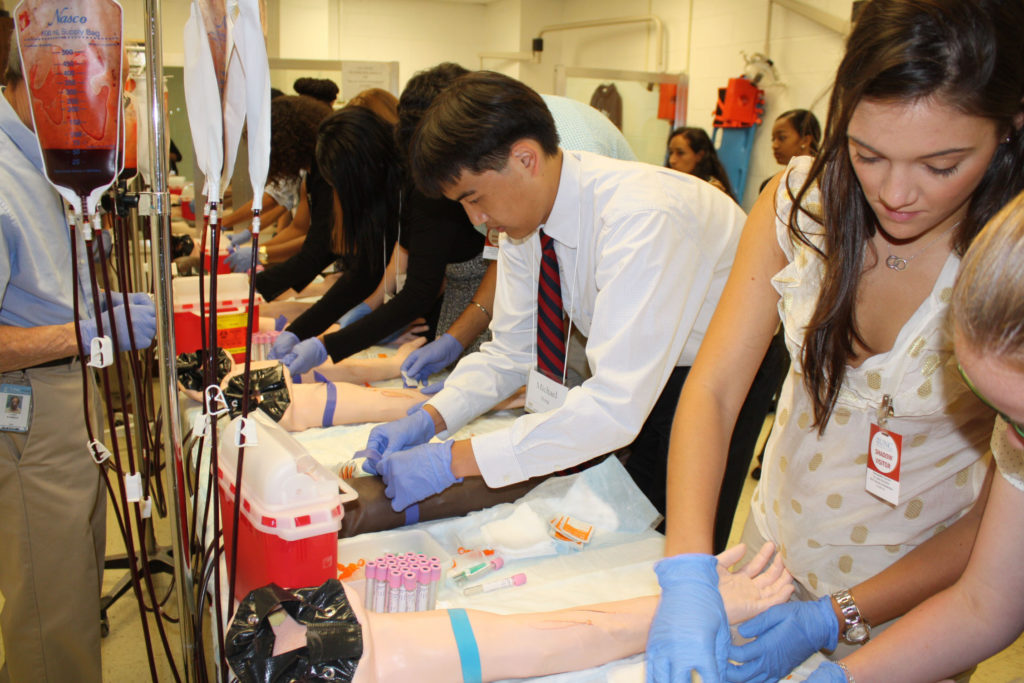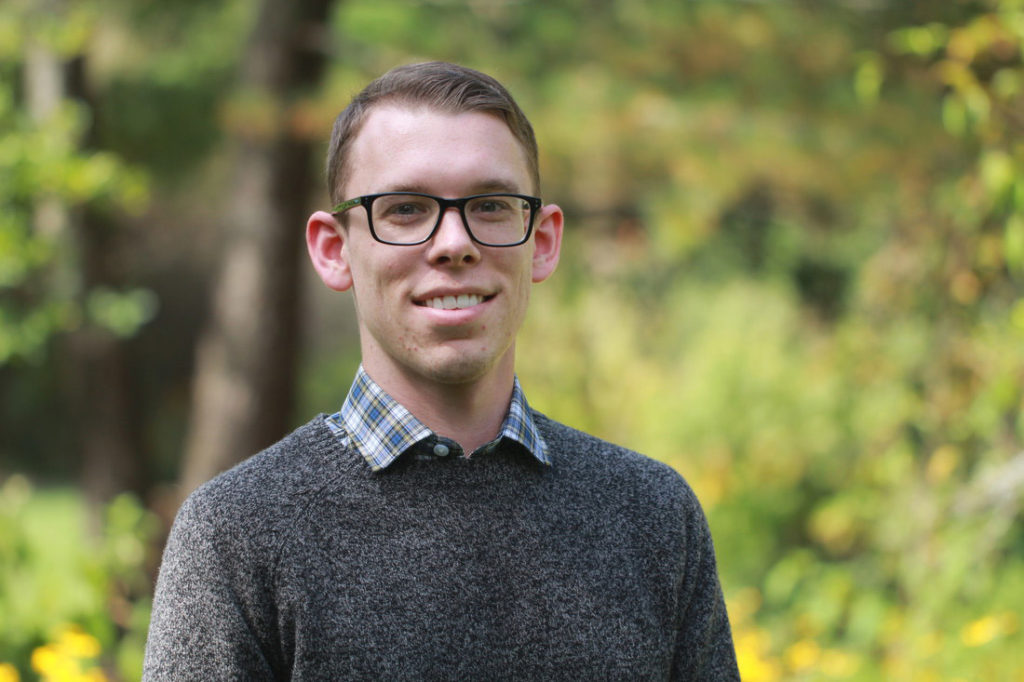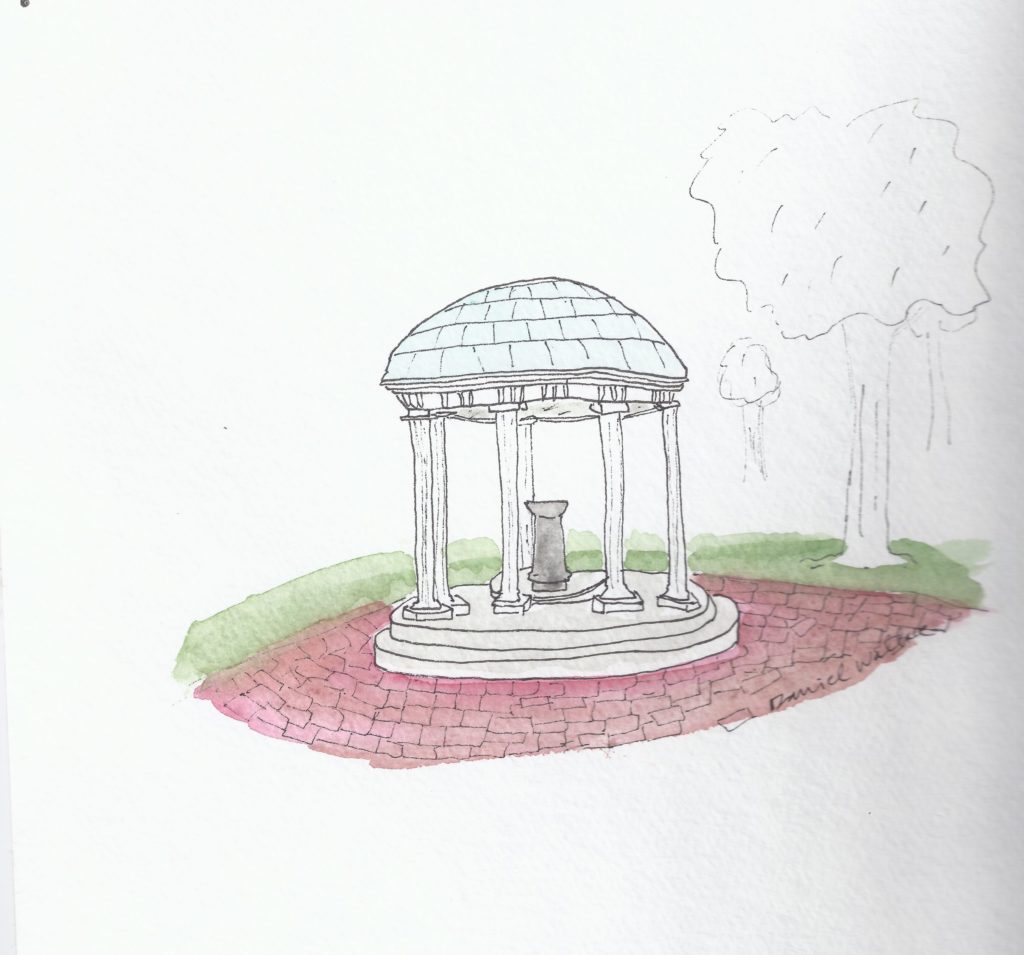
Engineers from across the Research Triangle are planting large ambitions for very small ideas in the minds of makers worldwide.
Nanotechnology: A Maker’s Course is a new free series of classes being offered through Coursera, a platform where anyone, anywhere can learn from the world’s top universities and education providers.
Taught by faculty from Duke University, UNC-Chapel Hill and NC State, the new online course opens a wealth of opportunities for people to learn about and use machinery involved in making high-tech products and studying materials on a molecular scale.
“We want to ignite the imagination of people across the world and make nanotechnology accessible to everyone,” said Nan Jokerst, the J. A. Jones Professor of Electrical and Computer Engineering at Duke and lead instructor for the course. “Not only do we show what our instruments and tools can do, we provide free access for people to come and actually use them. There’s no other online course like it.”
Nanotechnology: A Maker’s Course features a series of six-to-eight-minute videos describing different instruments and what they do, followed by videos of graduate students or faculty demonstrating how to use them.
The tools generally focus on two areas of nanotechnology — characterization and fabrication. Characterization deals with measuring and analyzing microscopic features, like using a scanning electron microscope to reveal the tiny details of an ant’s head. Fabrication focuses on actually making things, like patterning atoms and molecules into the minute features of integrated circuits.
“People are often intimidated by the word nanotechnology, and this course was designed to make nanotechnology accessible to the public,” said Carrie Donley, director of the Chapel Hill Analytical and Nanofabrication Laboratory (CHANL) in UNC’s College of Arts & Sciences. “We’re doing this by describing the tools used to fabricate and characterize nanoscale materials. We hope that this course will help educate the public about nanotechnology, convince a few students to take up careers in nanoscience, and inspire people to become ‘Nano Makers’ and come use our facility for themselves.”
In addition to Donley, UNC’s James Cahoon, associate professor of chemistry, is also an instructor of the course.
The videos highlight sophisticated technology available at Duke Engineering’s Shared Measurement Instrumentation Facility (SMiF) — photolithography, electron microscopy and Micro-Computed Tomography (MicroCT) scanning, which can produce complete 3-D internal and external views of solid objects, to name a few. They also feature instruments from UNC’s CHANL and NC State’s Analytical Instrumentation Facility and Nanofabrication Facility, among others.
The skills demonstrated are generally applicable in a wide range of industries, such as fabrics, cosmetics, composites, automotive fuel cells and batteries, water filtration, pharmaceuticals and computer fabrication.

“These facilities are extremely high-tech, but everyone can use them, from high-school students to local businesses,” said Jokerst, who is the executive director of SMIF. “The videos focus on demonstrations and plain-English explanations and feature a widely diverse set of demonstrators so everyone can visualize themselves as a NanoMaker. Our goal is to make all people, regardless of their background, aware of these opportunities and what they’re capable of.”
The Coursera series is supported by the Research Triangle Nanotechnology Network (RTNN) — a National Science Foundation-supported collaboration among Duke, UNC and NC State focused on providing public access to university facilities with leading-edge fabrication and characterization tools, instrumentation and expertise within all disciplines of nanoscale science, engineering and technology. Jacob Jones, Professor of Materials Science and Engineering Principal Investigator of the RTNN at NC State adds, “The RTNN has incredible resources and this course is one of the most impactful ways we aim to bring these resources to researchers across the world.”
For people able to visit the Research Triangle, the RTNN offers training and use of the tools and machines featured in the videos. For free use, those interested can submit one-page proposals and be awarded training and facility usage time to complete their projects. This offers small businesses the chance to create a prototype or local researchers to build a case for a larger grant proposal. For those nowhere near North Carolina, the instruments can be accessed with RTNN Staff support remotely via the internet.
The RTNN also has a local outreach arm, where members of the group take a scanning electron microscope out to local schools to raise interest and awareness. Handouts targeted for middle school and high school classrooms provide in-class activities with hands-on activities at RTNN facilities during a field trip. Summer camps and programs are also available for students who can make the trip.
“We really wanted to answer the question of, ‘How can you become a nanotechnology Maker?’” said Jokerst. “Our goal is to build our user base. As Sir Francis Bacon famously said, ‘Knowledge is power,’ and we want more people to have the knowledge of what’s possible through our programs.”
Story by Ken Kingery, Duke University’s Pratt School of Engineering




